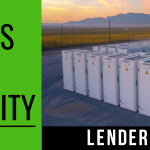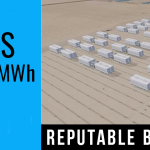
It’s undeniable that humanity’s dependence on fossil fuels needs to change if we are going to mitigate the disastrous impact of climate change. One of the best alternative energy sources is solar power because it is so plentiful–to meet the Earth’s current energy needs, we would only need .025% of the energy the sun emits every year. It’s also cheap: If you can put the infrastructure in place to collect and store it, the solar energy itself is free.
But incentivizing people to build that infrastructure remains a challenge. Ikea’s innovation lab Space10 is envisioning a new prototype for how solar energy could be installed in local communities and then shared on a small microgrid. The microgrid would enable people to sell their excess energy to others on a blockchain-powered platform. Called SolarVille, the idea came about because Space10 decided to do research into how solar energy might change people’s lives in the future. But it’s hard not to see the lab’s research in the context of Ikea’s larger sustainability goals and initiatives. For instance, one segment of Ikea’s business, a franchise called Ingka that runs Ikea stores in 30 countries, has pledged to bring affordable solar technology to homes in all of these markets by 2025. Ikea has also been selling solar panels in the U.K. since 2013 and launched a battery and solar panel kit in 2017, also in the U.K.
Right now, SolarVille is a 1:50 scale model village, where the homes are decked out with mini solar panels that harvest energy from the sun. All the buildings are hardwired together, creating a microgrid that enables everyone to share their energy. In the concept, some people will generate excess energy either by using less energy themselves or by installing more solar panels. A blockchain technology platform will enable them to sell that extra energy to their neighbors without any intermediary–instead, the transactions between neighbors are logged in a secure and transparent ledger. Space10 says that the design is meant to be easy to use and install, and all the software that runs the blockchain is free.
Part of the project is meant to lower the cost of energy, since the blockchain platform wouldn’t require a company in the middle. “Centralized energy systems are often too slow and economically inadequate to reach the billion people who remain locked in energy poverty,” Bas Van De Poel, creative director at Space10, tells Fast Company in an email, referring to the higher costs of traditional electricity and the infrastructure that would be required to bring it to under-powered areas. “SolarVille showcases that, when working in tandem, technologies such as solar panels, microgrids, and blockchain open new opportunities: off-grid systems allowing people to leapfrog traditional grid electricity.”
Click Here to Read Full Article





